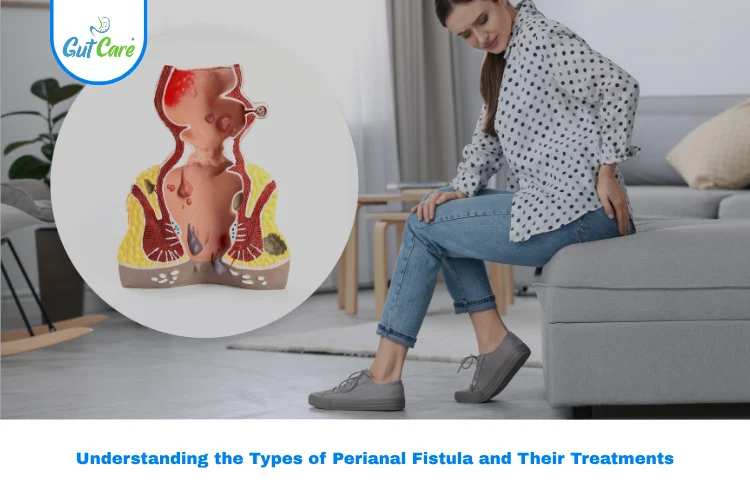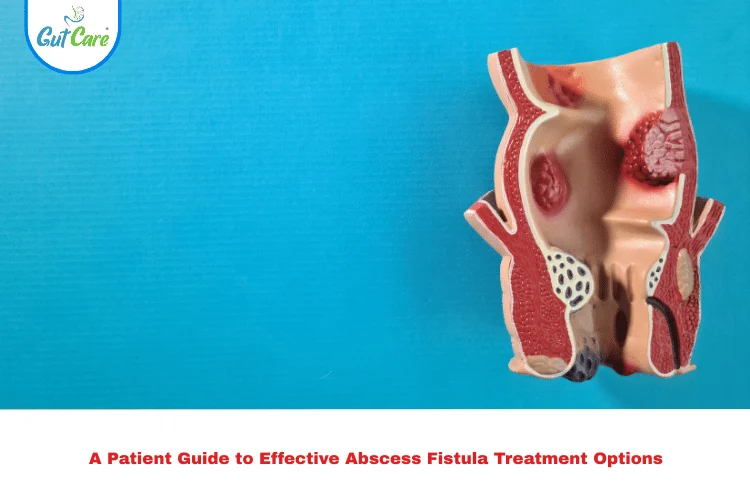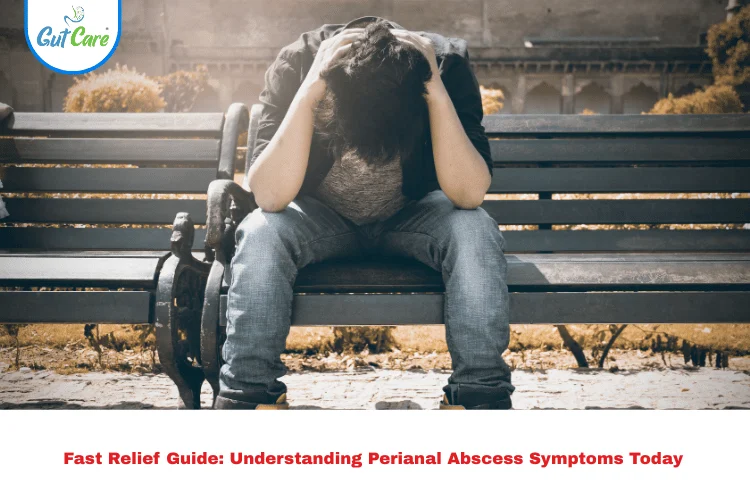When it comes to rectal and anal health, understanding the Types of Perianal Fistula is crucial for proper diagnosis and timely treatment. A perianal fistula is a small, abnormal tunnel that forms between the skin near the anus and the end of the rectum. This condition usually develops after an infection or abscess around the anal glands. At Gutcare Clinics, Bangalore, Dr. Yuvrajsingh Gehlot, a skilled colorectal surgeon, provides advanced evaluation and care for all types of perianal fistula cases, ensuring patients receive effective, minimally invasive treatment for lasting relief.
Perianal Fistula Meaning
To understand the Types of Perianal Fistula, it’s important to first know what this condition means. Perianal fistula refers to an abnormal tunnel or connection that forms between the anal canal and the skin surrounding the anus. It usually develops as a result of a previous perianal abscess, which is a small collection of pus caused by an infection or blockage of the anal glands. When this abscess does not heal properly or recurs, a fistula can form, leading to persistent discharge, irritation, or mild pain. Identifying the Types of Perianal Fistula helps in determining the best treatment approach and preventing future.
Causes of Perianal Fistula
The most common cause of a perianal fistula is a previous perianal abscess that didn’t heal completely. Other possible causes include:
- Chronic infections in anal glands
- Inflammatory bowel disease (like Crohn’s disease)
- Trauma to the anal area
- Surgery or injury around the rectum
- Persistent irritation or infection
Understanding these causes helps identify risk factors and supports early treatment to prevent perianal fistula complications.
Types of Perianal Fistula
The Types of Perianal Fistula are categorized based on how the tract runs between the anal canal and the skin. Here are the most common types:
1. Intersphincteric Fistula
This is the most common type. The tract runs between the internal and external sphincter muscles and opens near the anus. Symptoms include mild pain, discharge, and swelling.
2. Transsphincteric Fistula
The tract crosses both the internal and external sphincter muscles and opens further away from the anus. Patients may experience recurrent infection and pus discharge.
3. Suprasphincteric Fistula
The tract goes above the external sphincter and curves downward to the perianal skin. This type often causes significant pain and swelling.
4. Extrasphincteric Fistula
This is a complex form where the tract starts from the rectum and extends to the skin, bypassing the sphincter muscles. It is often linked to deeper infections or trauma.
5. Submucosal Fistula
This type runs just under the lining of the anal canal and is relatively simpler to treat. It usually causes mild discomfort and minor discharge.
Identifying the correct type is essential for choosing the best treatment plan. At Gutcare Clinics, each case is carefully assessed through advanced diagnostic imaging before suggesting any surgical or non-surgical treatment.
Symptoms of Perianal Fistula
The symptoms of a perianal fistula can vary depending on the type and severity of the condition. Most people with different Types of Perianal Fistula experience common signs such as pain or swelling near the anus, redness, and occasional discharge of pus or fluid. Some may notice irritation, itching, or mild discomfort while sitting or walking. In chronic cases, there can be repeated episodes of infection or abscess formation.
The symptoms vary depending on the type and severity. Common signs include:
- Persistent pain or swelling near the anus
- Discharge of pus or blood
- Skin irritation or redness
- Recurrent abscess formation
- Pain while sitting or during bowel movements
If these symptoms occur repeatedly, it is important to consult a colorectal surgeon for proper diagnosis and treatment.
Perianal Abscess Symptoms and Treatment at Home
A perianal abscess often precedes the formation of a fistula. Perianal abscess symptoms include intense pain, swelling, redness, and sometimes fever. While mild cases can be managed with perianal abscess treatment at home such as warm sitz baths, maintaining hygiene, and applying prescribed ointments medical intervention is often necessary to prevent further complications.
If the abscess does not drain completely, it can lead to chronic infection and result in fistula formation. Hence, timely consultation is essential.
Perianal Fistula Complications
Ignoring early symptoms can cause multiple perianal fistula complications, including:
- Recurrent infections
- Formation of multiple tracts
- Fecal incontinence (rare)
- Chronic pain and discharge
- Delay in healing after abscess drainage
Early diagnosis and proper surgical care by an experienced colorectal surgeon like Dr. Yuvrajsingh Gehlot at Gutcare Clinics can prevent these complications effectively.
Treatment Options for Perianal Fistula
Treatment for the Types of Perianal Fistula depends on the fistula’s complexity and location. Common options include:
1. Fistulotomy
A surgical procedure that opens and cleans the fistula tract to promote healing. Suitable for simple fistulas.
2. Laser Fistula Treatment
A modern, minimally invasive technique that seals the tract using laser energy, ensuring faster recovery and minimal pain.
3. LIFT Procedure (Ligation of Intersphincteric Fistula Tract)
A technique used for complex fistulas where the internal opening is sealed without affecting the sphincter muscles.
4. Seton Placement
A surgical thread is placed inside the fistula tract to promote gradual healing and prevent recurrence.
At Gutcare Clinics, patients receive personalized care, ensuring the right approach for every fistula type.
When to Consult a Doctor
If you notice continuous pain, discharge, or swelling around the anus, do not ignore it. Consult Dr. Yuvrajsingh Gehlot, an experienced colorectal surgeon in Bangalore, at Gutcare Clinics. Early evaluation prevents complications and ensures effective healing.
Conclusion
Understanding the Types of Perianal Fistula helps patients recognize early symptoms and seek timely care. With advanced diagnostic tools and minimally invasive treatments available at Gutcare Clinics, patients can expect faster recovery and improved comfort. Always consult a qualified colorectal specialist if symptoms persist to avoid long-term complications.
FAQs
1. What are the common Types of Perianal Fistula?
The main types include intersphincteric, transsphincteric, suprasphincteric, extrasphincteric, and submucosal fistulas. Each differs in the tract’s path and symptoms.
2. Can a perianal fistula heal without surgery?
In most cases, a perianal fistula does not heal on its own. Medical or surgical treatment is necessary to prevent infection and recurrence.
3. What are the early perianal abscess symptoms?
Common signs include swelling, pain near the anus, redness, and sometimes fever. If untreated, an abscess can develop into a fistula.
4. How can I manage perianal abscess treatment at home?
Warm sitz baths, hygiene maintenance, and doctor-prescribed ointments can help, but persistent abscesses need medical drainage.
5. Why choose Gutcare Clinics for perianal fistula treatment?
At Gutcare Clinics, Bangalore, Dr. Yuvrajsingh Gehlot, a skilled colorectal surgeon, provides expert diagnosis and advanced treatment options for all Types of Perianal Fistula, ensuring safe and effective recovery.




